
Mandarin Duck
Mandarin Duck
Mandarin Duck
The Mandarin Duck is famous for its unique courtship behavior, which has led to the term 'a happily married couple' being referred to as a 'Mandarin duck couple' in Japan. This page will introduce the habitat, characteristics, and various charms of the Mandarin Duck.
Mandarin Duck Basic Infomation
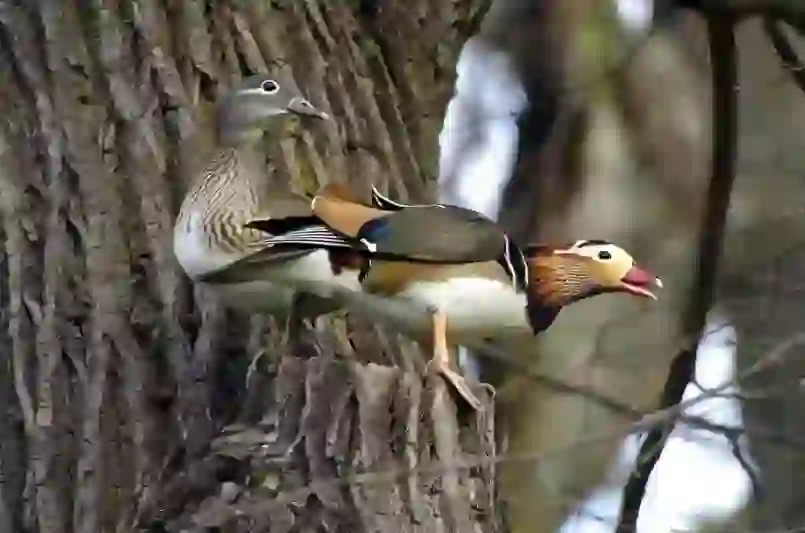
Class: Aves, Order: Anseriformes, Family: Anatidae, Genus: Aix
Body Length: Approximately 41-48 cm, Wingspan: Approximately 68-74 cm, Weight: 0.5-0.6 kg
The tip of the beak is white, and there are differences in the color of the beak and plumage between males and females.
Reproduction is oviparous, and the egg size is about 5.3 cm long by 3.7 cm wide, which is the size of a palm.
Mandarin Duck Q&A

What is the origin of the Mandarin Duck's name?
The name 'Mandarin Duck' is derived from the affectionate behavior exhibited by the ducks towards each other, where the male and female lovingly engage, hence the name 'Oshidori' in Japanese, derived from 'Oshi' meaning 'love'. In English, the name 'Mandarin Duck' refers to the duck's bright and colorful appearance. The scientific name is 'Aix galericulata', where 'Aix' is Latin for 'water' and 'galericulata' means 'wearing a little cap'.
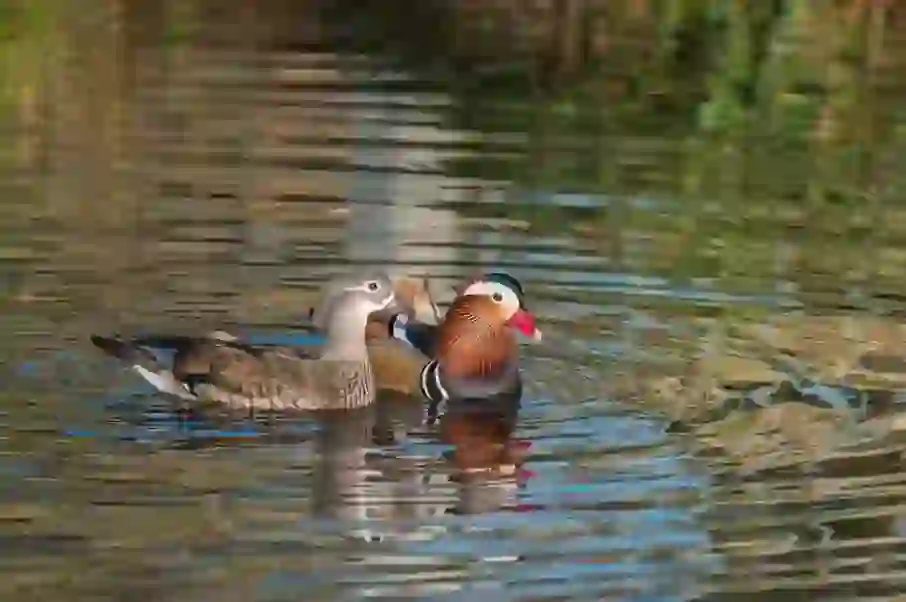
Why does the Mandarin Duck live there?
Mandarin Ducks are found in East Asia, including southeastern Russia, Japan, China, and the Korean Peninsula. In Japan, they breed in regions from central to northern Honshu and Hokkaido, and migrate south to southern Honshu for wintering. They inhabit riverbanks and lakesides, particularly preferring shaded waters near dense vegetation and are also found perching on tree branches.
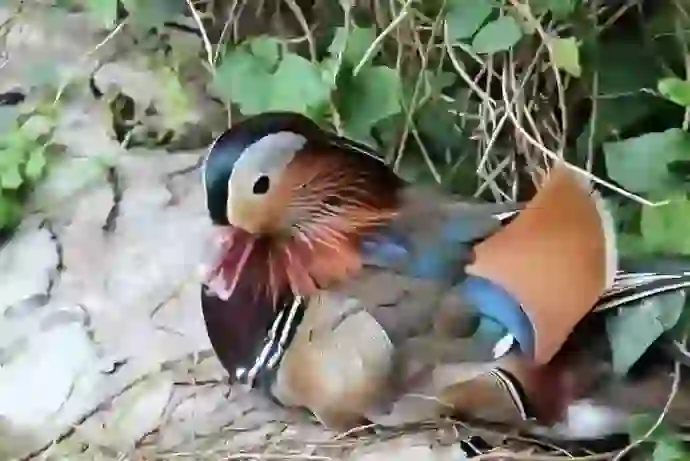
What does the Mandarin Duck eat?
The Mandarin Duck has a diet leaning towards herbivorous tendencies but is omnivorous. It feeds on fruits, seeds, aquatic plants, insects, and land mollusks. The ducks forage both on land and in water. When feeding wild Mandarin Ducks, acorns, old rice, old beans, and old wheat are appreciated.
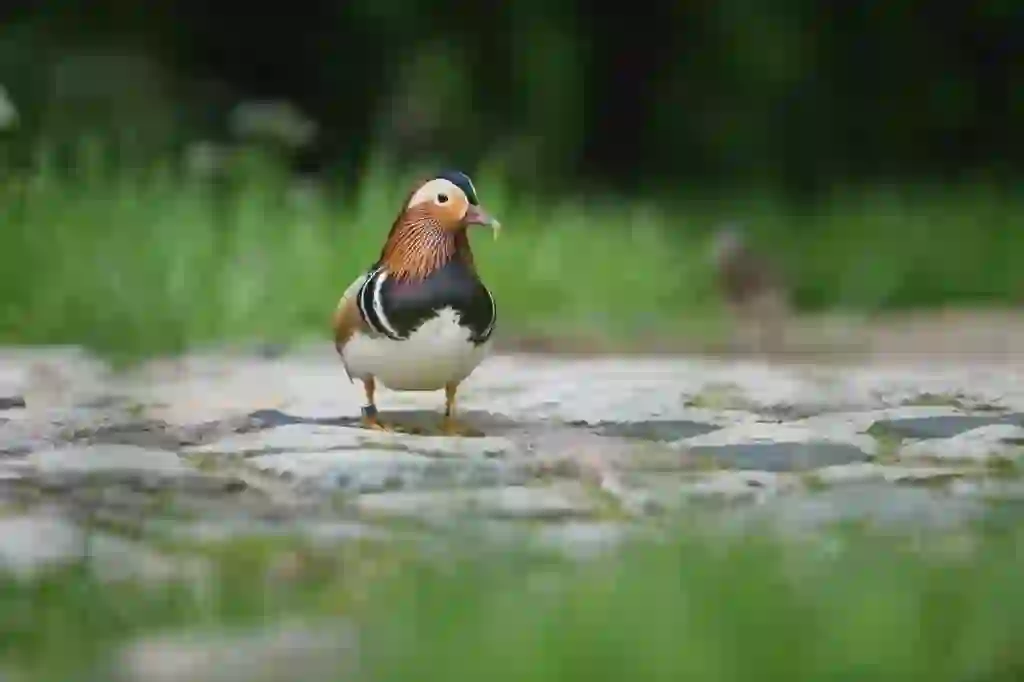
Do Mandarin Ducks differ in appearance between males and females?
Mandarin Ducks exhibit sexual dimorphism. Males have a red beak and develop elongated ornamental feathers during the breeding season, with distinctive white stripes on their faces and bellies, and their breast feathers show a purple hue. Females have a grey-black beak, and their plumage is generally grey-brown. Outside the breeding season, males resemble females in color.
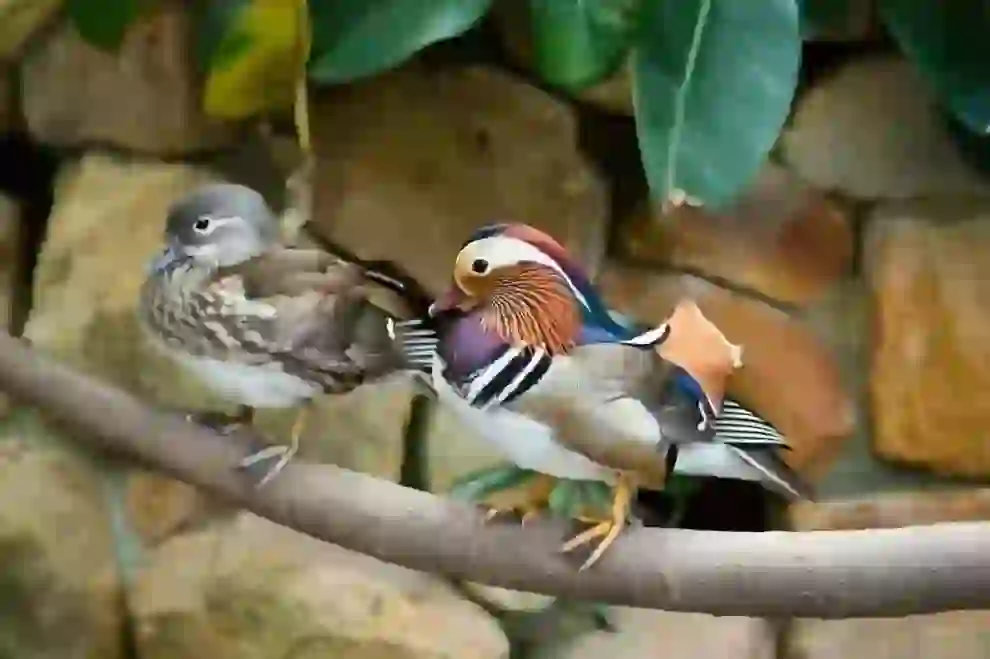
Do Mandarin Ducks nest in trees?
Mandarin Ducks nest in tree cavities, sometimes over 10 meters above the ground, laying about 9-12 eggs. Only the female incubates the eggs for about 28 days to a month. Once the chicks hatch, they jump from the nest to the ground, guided by their mother.
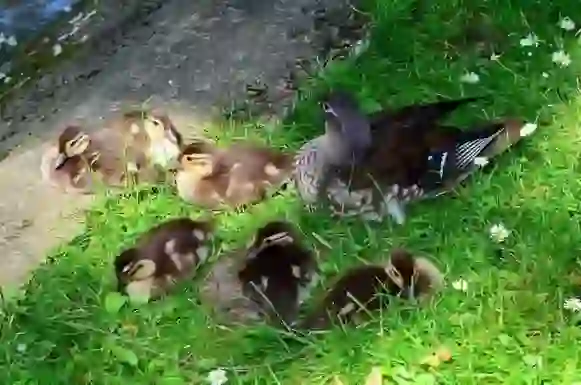
Do male Mandarin Ducks become plain after the breeding season?
After the breeding season, male Mandarin Ducks lose their colorful plumage and take on a more subdued appearance, similar to the females, making it difficult to distinguish between the sexes. During summer, males can be identified by the persistent pink color of their beaks.
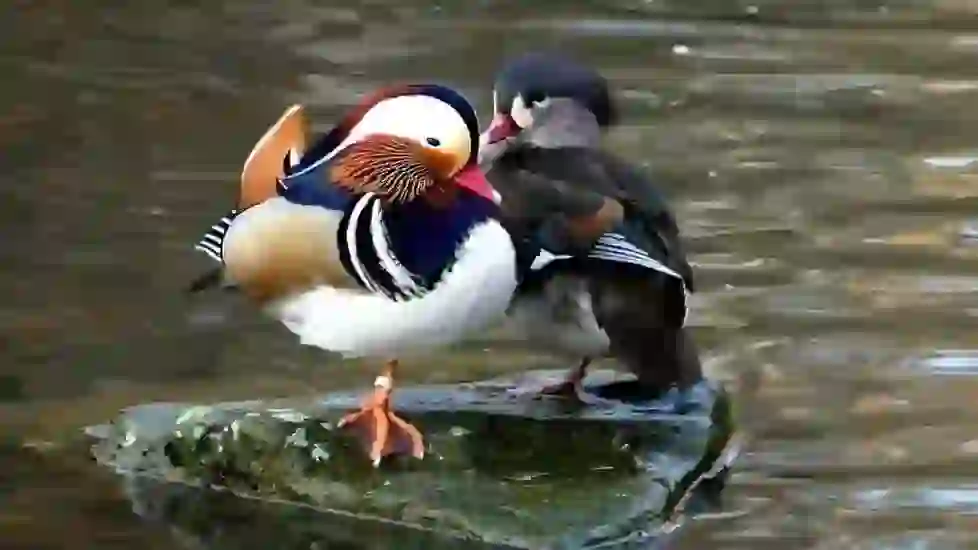
Are Mandarin Ducks monogamous?
Contrary to the idyllic image of 'Mandarin duck couples', male Mandarin Ducks do not stay with a single female for life. They change partners each breeding season. After breeding, the males revert to a plain appearance and do not participate in rearing the young.

How did the Mandarin Duck become a symbol of conjugal affection?
Despite the real habits of Mandarin Ducks, they became symbols of conjugal affection based on an ancient Chinese tale, where a man and his wife who were forcibly separated by a tyrant died and were believed to have reunited as Mandarin Ducks. This romanticized view contrasts with their actual behavior.
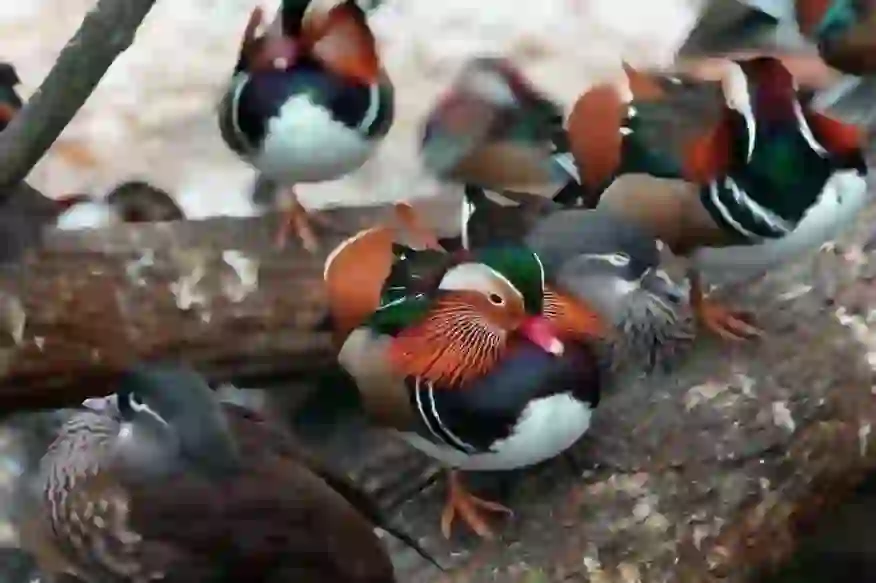
Although part of the duck family, are Mandarin Ducks migratory?
Mandarin Ducks are not migratory. They reside in Japan throughout the year, breeding in cooler regions in eastern Japan during summer and wintering in warmer western Japan.
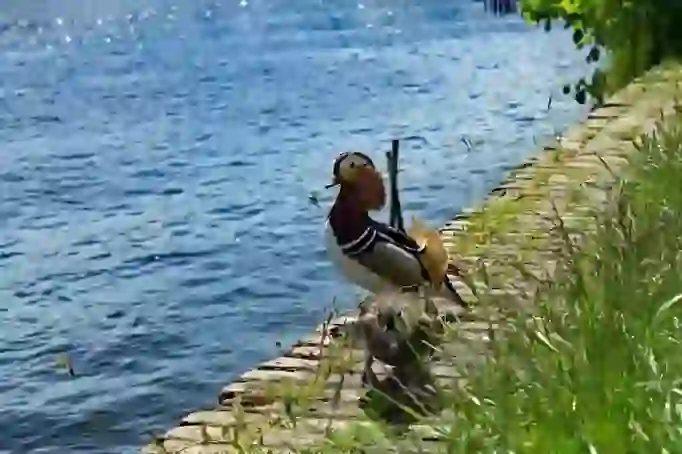
What are the natural predators of Mandarin Ducks and their lifespan?
Natural predators include crows and martens, which prey on chicks. While Mandarin Ducks are not classified as endangered, their habitats are diminishing, and their population is decreasing. In the wild, Mandarin Ducks can live for 10-20 years, which is relatively long compared to other duck species.
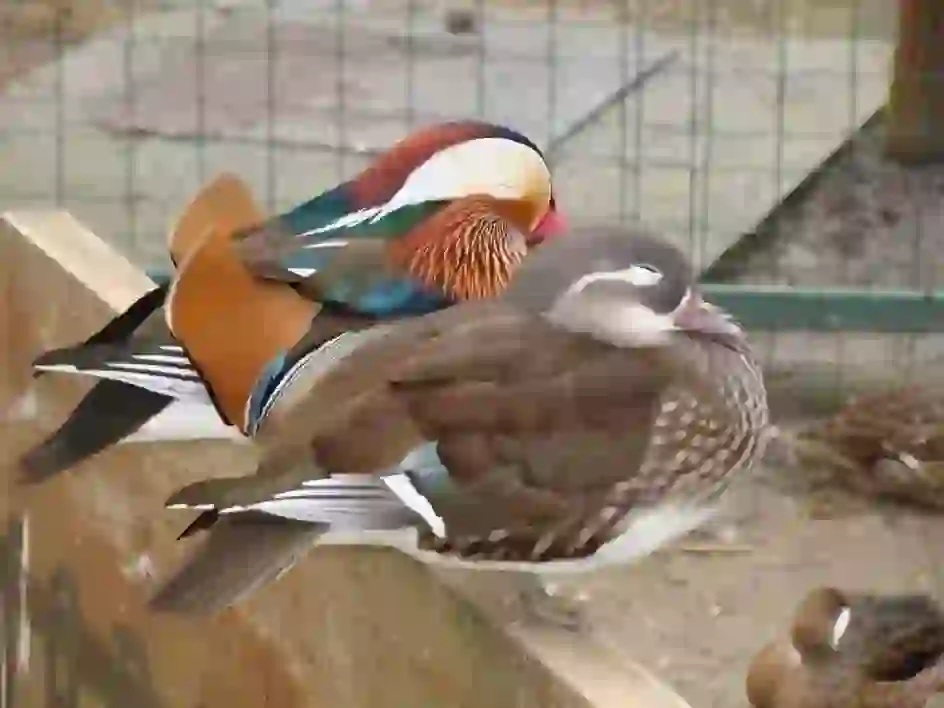
Where can Mandarin Ducks be seen in zoos?
Mandarin Ducks are relatively easy to care for and can be seen in zoos from Hokkaido to Kyushu. Some zoos offer interactive experiences, such as feeding the ducks, which allows visitors to observe their behavior closely. In zoos, their diet typically includes vegetables like komatsuna and hakusai, waterfowl pellets, and commercial bird feed.

Would you like to become a part of the 'Animalbook.jp'?
Turn your knowledge into Q&A and share it with the world. ※Publication will be activated after purchase. Let's share information together!
Mandarin Duck Type of List
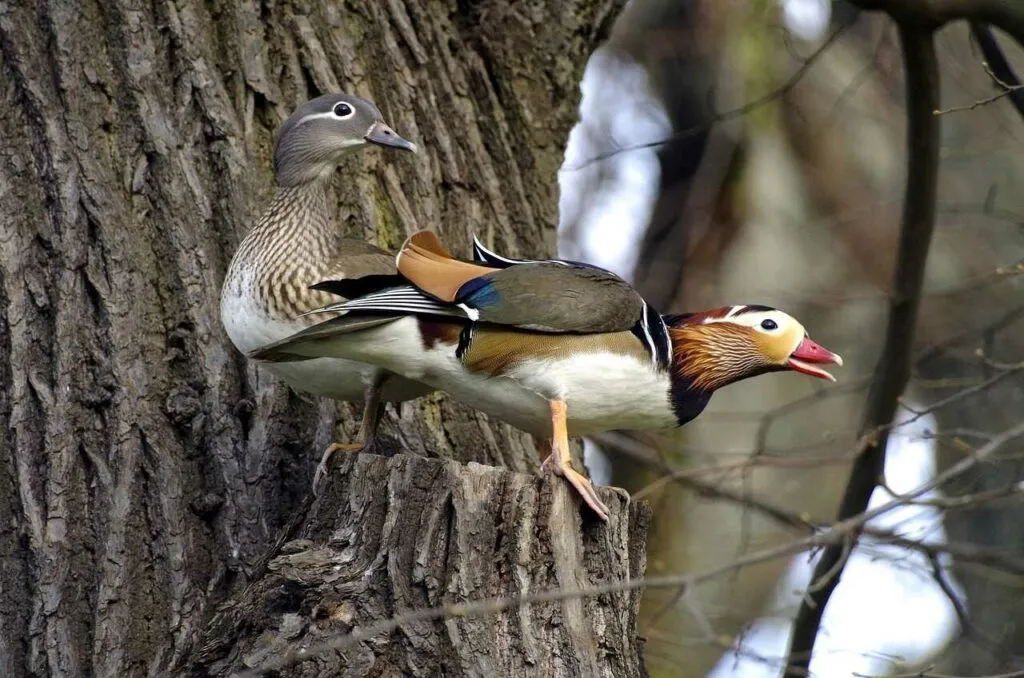
- Mandarin Duck
Information
Congratulations! You are the first commenter!

Create Your Favorite List!
Mandarin Duck
Save the animals you love! Build your own list to quickly revisit your favorites later.

Would you like to leave a comment?
※Please note: This is for the purchase of rights to post comments within the article.
Find Your Favorites!
Our shop offers a unique and attractive selection of goods themed around various animals.
Mandarin Duck References

- Wikipedia https://ja.wikipedia.org/wiki/オシドリ
- オシドリ:おしどり夫婦の真実?|野生写真図鑑‐Canon Global https://global.canon/ja/environment/bird-branch/photo-gallery/oshidori/index.html
- おしどり夫婦ではないおしどりがどうして仲睦まじい夫婦の象徴なのか? https://biome.co.jp/biome_blog_196/
- 【オシドリ(野鳥)の生態!】生息地や鳴き声の特徴について等8個のポイント! https://sekainotori.com/3737.html
- 福岡市動物園|オシドリ https://zoo.city.fukuoka.lg.jp/animals/detail/67
Mandarin Duck Introduction of media used

出典:https://pixabay.com/images/id-4082266/

出典:https://pixabay.com/images/id-2171881/

出典:https://pixabay.com/images/id-4956895/

出典:https://unsplash.com/photos/Ivm-i5BkPu4

出典:https://pixabay.com/images/id-458069/

出典:https://pixabay.com/images/id-7078942/

出典:https://pixabay.com/images/id-3405329/

出典:https://pixabay.com/images/id-7532854/
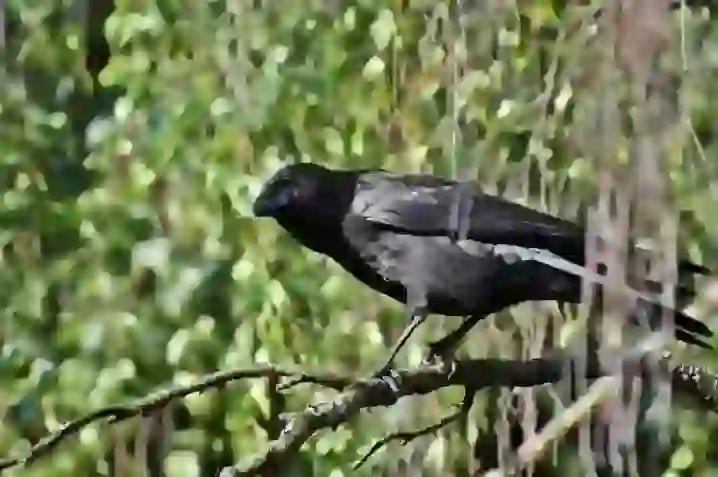
enemy
出典:https://pixabay.com/images/id-7504637/
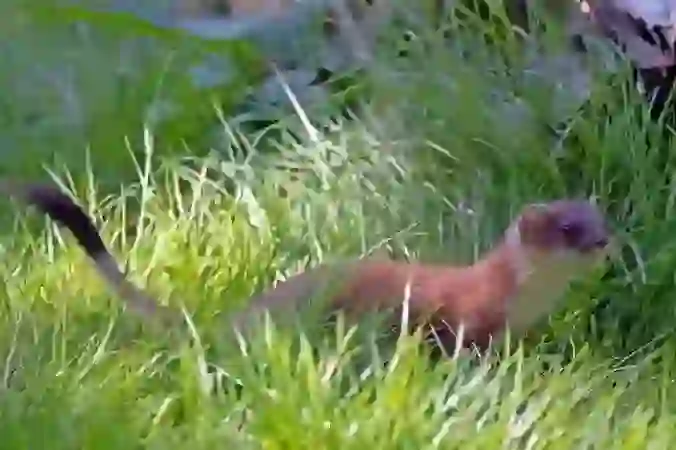
enemy
出典:https://pixabay.com/images/id-6601789/

出典:https://pixabay.com/images/id-957117/

Help Enrich Our Animalbook.jp with Your Media!
We are constantly looking to expand and enrich our Animalbook.jp with amazing photos and videos of animals. If you have any media that you'd like to share, please contribute and help us showcase the beauty and diversity of the animal kingdom. Your submissions will be credited and featured in our encyclopedia, reaching a wide audience of animal lovers.


















